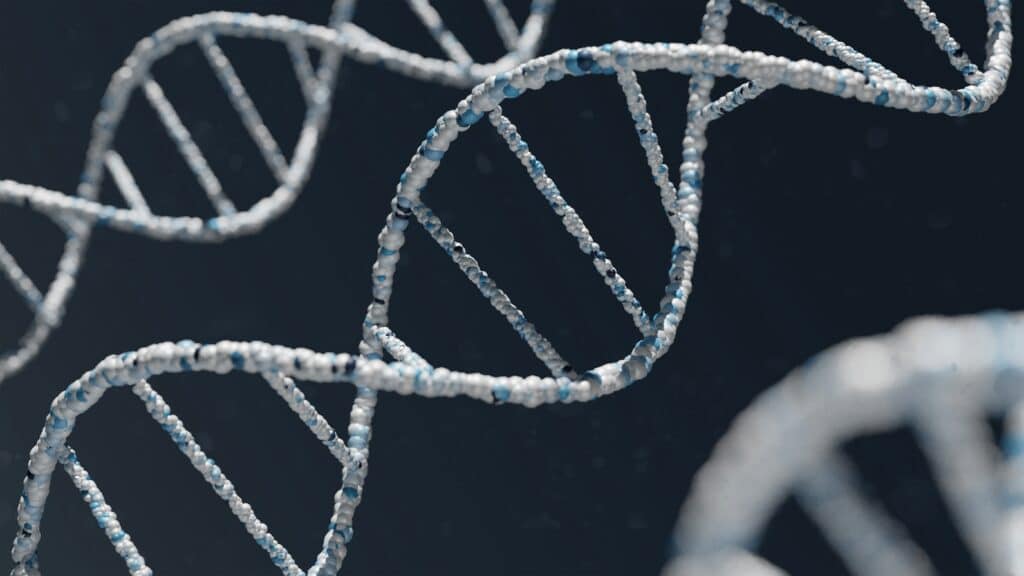
Bioinformatics Minor
The Bioinformatics minor gives you a strong foundation in the computational and analytical skills needed to work at the intersection of biology, statistics, and computer science. Designed for students from a wide range of academic backgrounds, this minor helps you build key skills in math, computing, and biology that are valuable for graduate study or careers in research, industry, or government.
Program Overview
The Bioinformatics Minor is designed to prepare you for a career in bioinformatics, a multidisciplinary field that combines biology, computer science, and information technology to analyze and interpret biological data. This interdisciplinary program integrates coursework from biology, computer science, mathematics, and statistics, providing you with a well-rounded foundation for careers in biotechnology, medicine, environmental science, and academic research.
Gain both theoretical knowledge and hands-on skills through a cutting-edge curriculum that emphasizes real-world experience and culminates in a capstone project where you will apply what you’ve learned. Whether students plan to pursue graduate study or enter industry, this minor enhances their academic profile and prepares them to work at the forefront of life sciences and data analysis.


Why Study Bioinformatics
Career Readiness
Bioinformatics is an in-demand area across research, biotech, and pharmaceutical industries, among others. Gain the skills and knowledge to make an immediate impact in the workforce.
Hands-On Experience
CECS partners with industry professionals to ensure students receive hands-on opportunities through paid, for-credit internships, co-ops, research, and capstones to prepare them for workforce entry.
Innovative Curriculum
With bioinformatics ever-evolving, CECS is dedicated to remaining on the forefront of technology, ensuring graduates enter the workforce with the most current knowledge.
Drive Innovation
Bioinformatics is at the heart of cutting-edge fields like synthetic biology, gene editing, and AI-powered drug discovery. Your work in bioinformatics can help shape the future of science and medicine.
Global Impact
From tracking disease outbreaks to improving food security, bioinformatics professionals solve global challenges that affect millions of lives and make a direct impact on bettering communities.
Customize Your Journey
Tailor your studies to your strengths and interests, whether you prefer coding, lab science, or data analysis, making your bioinformatics minor a highly adaptable and personalized educational experience.
What can you do with a minor in Bioinformatics?
A minor in Bioinformatics gives you the foundational skills and knowledge to pursue rewarding careers across disciplines.
Bioinformatics Analyst
A Bioinformatics Analyst uses software and databases to analyze biological data such as DNA, RNA, or protein sequences. They often work in research labs, biotech firms, or healthcare settings to support scientific discoveries or diagnostics.
Data Scientist
A Data Scientist applies statistical and machine learning techniques to large biological or medical datasets. They help uncover patterns and insights that can inform research, clinical decisions, or product development.
Computational Biologist
A Computational Biologist uses mathematical models to simulate biological processes. They often collaborate with experimental biologists to interpret data and generate predictions.
Health Software Developer
A Health Software Developer designs and builds tools, databases, or applications used in biology or healthcare. They may create platforms for genomic analysis, health tracking, or lab automation.
Featured Courses
Bioinformatics courses are comprehensive and hands-on, equipping students with the skills required in today’s evolving world.
BINF 201
Introduction to Bioinformatics
This course explores topics in the field of bioinformatics including tools and resources used by the discipline. Students will also be given hands-on experience with different computational frameworks, e.g., Web-based tools/databases used on student laptops, version control (Git), to command line/Unix.
BINF 202
Bioinformatics
Programming
This course focuses on developing problem-solving skills and apply them to solve real problems in bioinformatics using the R and/or Python programming languages. Domain-specific projects and labs will be assigned throughout the course to encourage students to apply computing to multiple areas of bioinformatics.
CECS 399
CECS Transdisciplinary Capstone
This Capstone course is a hands-on course during which students will complete a comprehensive project. Students will apply their knowledge and use their skills as they work in collaborative teams and develop innovative solutions to real-world problems. Under faculty guidance, students will present their findings through a final report and/or presentation.
CECS 499
CECS Senior Transdisciplinary Capstone
This Capstone course is a senior level, hands-on course during which students will complete a comprehensive project. Students will apply their knowledge and use their skills as they work in collaborative teams and develop innovative solutions to real-world problems. Under faculty guidance, students will present their findings through a final report and/or presentation.
Related Programs, Certificates & Minors
CECS offers innovative, customizable majors, minors, and certificates in areas of emerging technology and the skills required by the workforce of the future.

Admissions and Aid
Learn more about admissions and aid by visiting the links below.

Request Information
Interested in learning more? Contact us!
Questions? We’re here to help.
If you have questions about the Applied Cybersecurity minor or navigating the application process, contact us.




